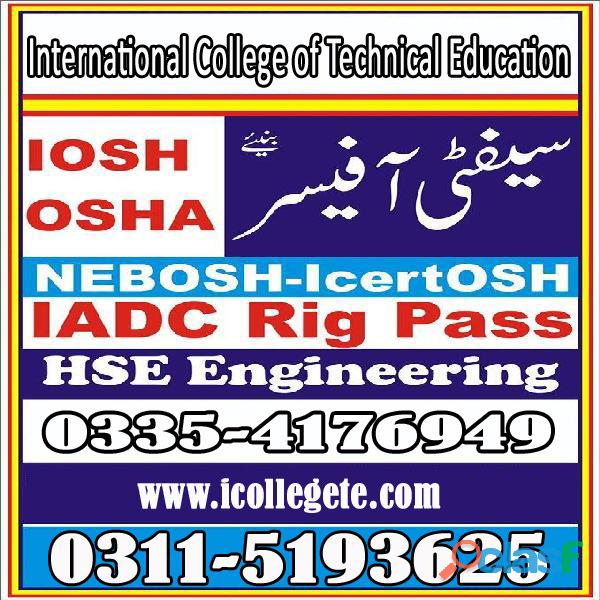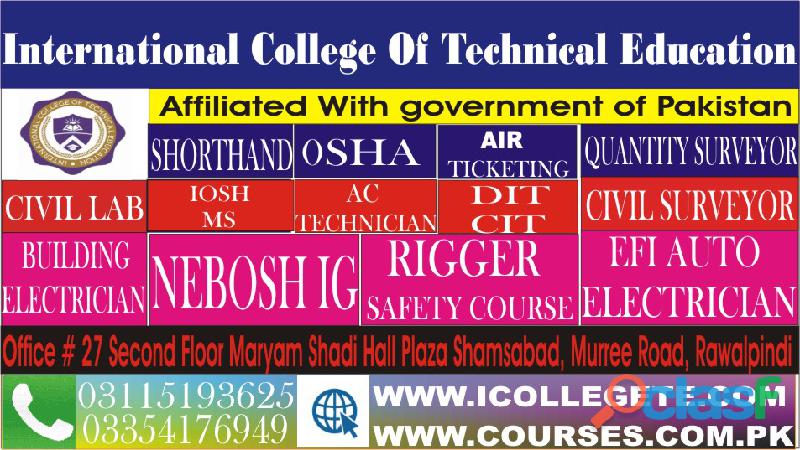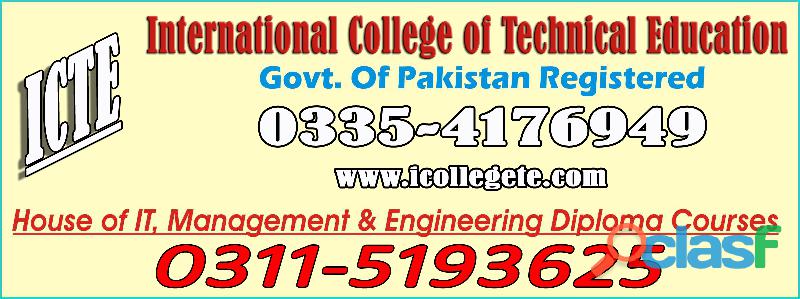QUALITY CONTROL PROFESSIONAL COURSE IN FAISALABAD SIALKOT IN FAISALABAD
Quality Control Professional Course in Faisalabad Sialkot,Quality Control Professional Course in Rawalpindi Islamabad Pakistan,international college of technical education in rawalpindi islamabad pakistan,best quality control course in rawalpindi islamabad pakistan,Quality control (QC) is a procedure or set of procedures intended to ensure that a manufactured product or performed service adheres to a defined set of quality criteria or meets the requirements of the client or customer. QC is similar to, but not identical with, quality assurance (QA).quality control training courses are designed specifically to help you learn to monitor and adjust processes so that your organization can put a strong focus on continuously improving its quality efforts.QC Course in Rawalpindi, Qc inspector Course in Rawalpindi, QA/QC/TQM Course in Rawalpindi, Quality control (QC) is a procedure or set of procedures intended to ensure that a manufactured product or performed service adheres to a defined set of quality criteria or meets the requirements of the client or customer.Quality Control training courses can help you learn processes to monitor and maintain quality. Find course listings and member discounts, Piping & Welding inspector course is a blend of essentials of Piping knowledge, welding fundamentals & Quality control inspection activities.an ISO 9001:2008 Certified Institute for Design & Development of Courses in QA QC , QMS, Industrial Safety (HSE), Piping. Quality control (QC) is a procedure or set of procedures intended to ensure that a manufactured product or performed service adheres to a defined set of quality criteria or meets the requirements of the client or customer. QC is similar to, but not identical with, quality assurance (QA). It provides theoretical concepts and practical experience in the design of quality systems, and exposes students to QA and QC approaches taken in food-producing organisations. Topics covered include: concepts and specific safety issues, physical, chemical and biological risks, legislative framework for managing food safety by government, management of food safety and quality by industry, food quality systems including TQM, HACCP and ISO quality standards, national and international regulation and issues, legal and insurance issues, consumer concerns - education, social, moral and ethical issues.With over a million organizations worldwide certified to the ISO 9001 quality management systems standard, no organisation can afford to pay the price of not recognizing that managing quality assurance and control are essential requirements for those producing and selling goods and services. The essence of quality management is processes, people, management system and performance evaluation and the revised ISO 9001:2015 is a significant change to the earlier version in addressing the key items that need to be addressed in your quality system. Those organizations that are making the transition to the new standard need to fully understand the differences and what is required particularly on context, interested parties, leadership and risk based thinking.
Quality planning and control: How organizations ensure that their processes and products meet customer needs.
Quality management systems, risk management, and auditing: How organizations implement structural change that helps the business compete.
Lean Six Sigma and process improvement: How organizations change to meet the challenge of changing global markets.
Leadership and teambuilding: How to leverage key resources in the organization.
Quality Control (QC) Course Outline:
Introduction
TQM Principles
Statistical Process Control (SPC)
TQM Tools
Quality Systems
Quality planning and control: How organizations ensure that their processes and products meet customer needs.
Quality management systems, risk management, and auditing: How organizations implement structural change that helps the business compete.
Lean Six Sigma and process improvement: How organizations change to meet the challenge of changing global markets.
Leadership and teambuilding: How to leverage key resources in the organization.
Quality Control (QC) Course Outline:
Introduction
TQM Principles
Statistical Process Control (SPC)
TQM Tools
Quality Systems
4.00/5
1 reviews


⟩
Photo 1 / 4





CONTACT




